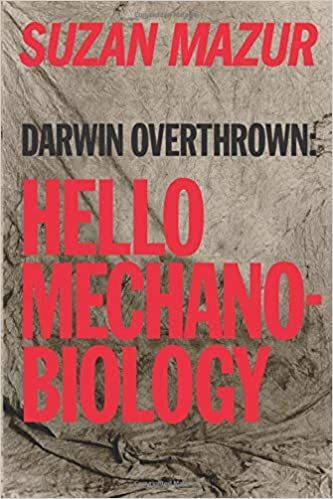At Oscillations: Information on the Linnean Society Virtual Meeting (June 28–29)
Oscillations is science writer Suzan Mazur’s blog. Mazur draws attention to the Linnean Society’s virtual conference, Evolution ‘On Purpose’: Teleonomy in Living Systems: “Living systems exhibit an internal teleology, the full implications of which have not been explored. This meeting will address various aspects of this phenomenon, including its scope and meaning, and its many forms and facets.”
Anthropologist Maurice Bloch has suggested that human imagination arose 40,000 to 50,000 years ago during the upper Paleolithic revolution, that humans largely live in their reflective imagination, and that human “pretend play” is now evident as early as age six. But Bloch—who says imagination in the brain is “separate from perceived stimulus”—has not assigned a numbers range for other animals or for plants, fungi, microbes, or viruses. Perhaps the experts gathering June 28-29 online under the banner of the Linnean Society to discuss living systems will.
Suzan Mazur, “Mechanobiology/Atomic Biology Nexus: Natural Selection “Dispose[d] Of”” at Oscillations
It will be most interesting if the Linnaean virtual attendees propose to discuss “animal mind.”
Imagination, as noted, is definitely a separate thing from perceived stimulus because it refers to the recall of stimuli not present. For example, we imagine a hot cup of coffee when it is not available — until we make it or go out to the coffee shop.
That’s not only a human thing. In the early morning, dogs surely imagine what chewing the newspaper to pieces feels like long before it has fallen through the slot in the door.

But here’s a question: Which life forms experience such triggers (or don’t)? Is there a hierarchy or is it more scattered? Are neural correlates the same or different if/when they do?
Exploration of this area might help us understand mental phenomena better. In turn, greater understanding could help us determine vexed questions like animal suffering. For example, the question — under what circumstances is an animal really “suffering” — is important in developing reasonable humane legislation.
Mazur is also the author of Darwin Overthrown: Hello Mechanobiology She offers other interesting stuff in the same post at Oscillations, including excerpts from her interview with Oak Ridge National Laboratories scientist John Katsaras.
Copyright © 2021 Uncommon Descent . This Feed is for personal non-commercial use only. If you are not reading this material in your news aggregator, the site you are looking at is guilty of copyright infringement UNLESS EXPLICIT PERMISSION OTHERWISE HAS BEEN GIVEN. Please contact legal@uncommondescent.com so we can take legal action immediately.Plugin by Taragana
Michael J. Behe's Blog
- Michael J. Behe's profile
- 219 followers



